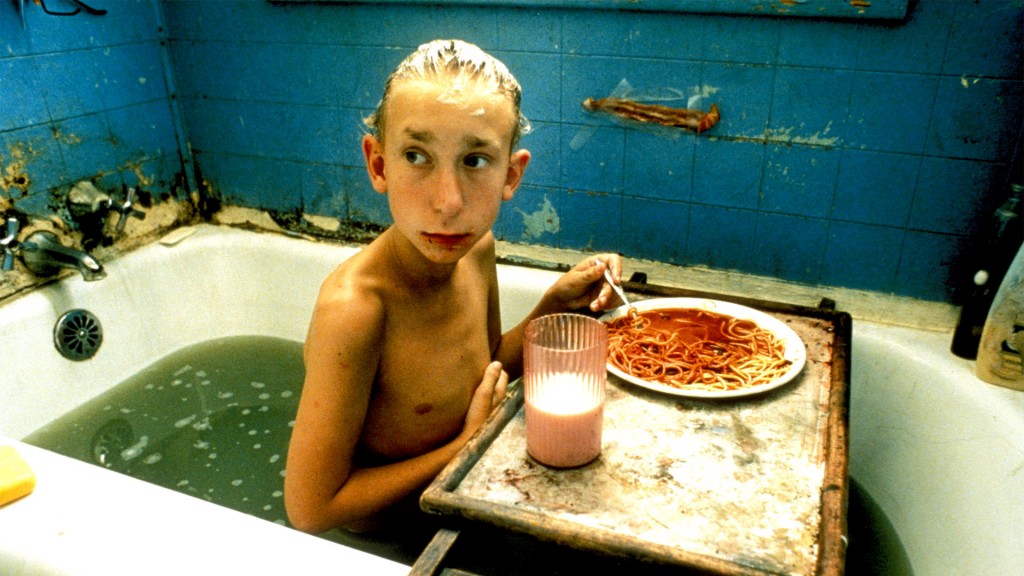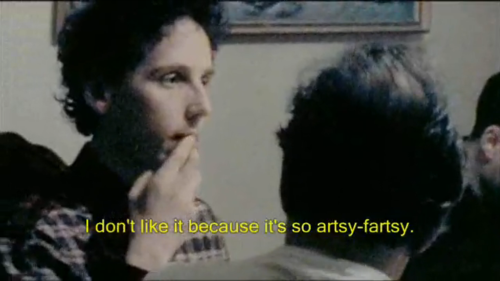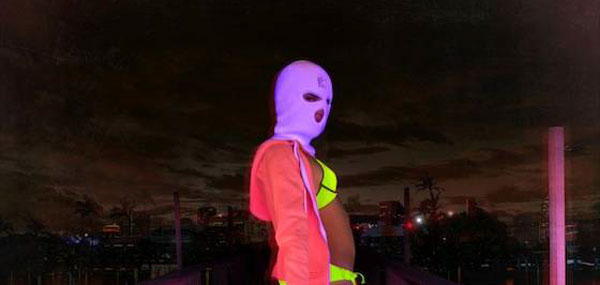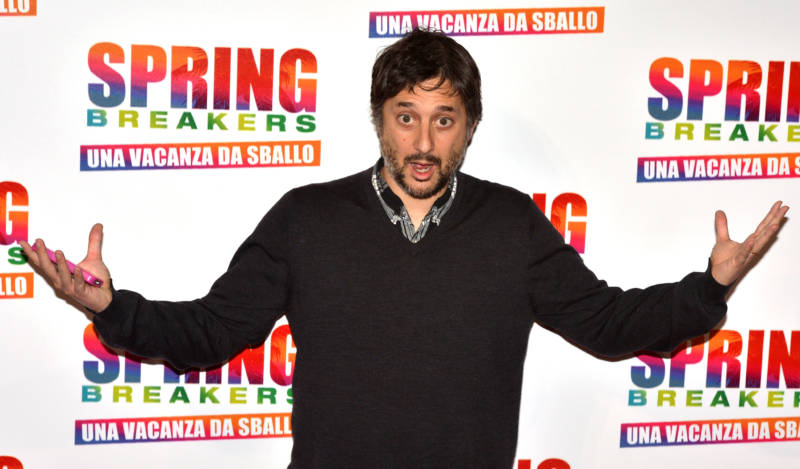I’ve never been a careerist. It’s not a strategy. I react to certain characters and story lines and specific mode of filmmaking. I feel a kind of emotional pull in a specific direction and that’s what I follow. As far as the sellout thing goes: It makes me laugh. That term means nothing anymore. This whole idea of “sellout culture” or what’s high or low culture is an old person’s thought process. It’s counter to the truth of the moment. It does not exist anymore. It’s been obliterated. There’s no such thing as underground, no such thing as sellout. There’s nothing high. There’s nothing base. It all exists in the air. Things are either interesting or not interesting. Good or not good. Things have a connection and a grace and an energy or they don’t. That’s all I care about. –Harmony Korine in Salon
I do sometimes admire Harmony Korine conceptually more than I actually like his movies. But still, I'm fascinated by him. I love people always calling him enfant terrible even though he's 40, getting mad about his antics and trying to figure out what he means. I love how half-crazy, half-brilliant he sounds when he talks, and how engaged he is with his provocation and the impressionistic messy magic of the world he sees. I love his Letterman interviews from the '90s which make him seem like an eccentric savant in the best way; hilarious, strangely particular and deeply unconcerned with trivialities. I love that his fans include Julian Schnabel, Bernardo Bertolucci and Werner Herzog, the latter of whom is an actor in Korine’s films and encouraged him after a bad review of Gummo, saying that the movie would live forever. I love that he makes weirdly poignant homage videos to Jonas Mekas (see "Curb Dancing," above), unfinished projects where he instigates fistfights with people, experiments with Dogme 95, shoots on a VHS camcorder and when he was 19 just happened to be skateboarding around with his screenplay in his pocket. At various points in my life I’ve been impressed, bothered and intrigued by his movies, but never bored. I was happy to see him re-emerge after a decade of drugs, mowing lawns, starting house fires and wandering Paris, with Mr. Lonely, a calmer, but no less interesting movie. He said the next one would be more provocative and, true to his word, he then made Trash Humpers.

I was pretty psyched to see his latest, Spring Breakers, for many reasons; the hot pink hued preview, the fact that he cast a bunch of teen pop queens from Disney and Pretty Little Liars, and because the A.V. Club says he’s dynamiting the zeitgeist which sounds like a worthwhile pastime, cinematic and otherwise. I wanted to know what grown-up Harmony Korine was up to. He seems confused we aren't all laughing more at the discord between our need to seek meaning and our inability to find any. For that I find him mesmerizing.

Though I understand the critiques of him and his work, I think what he does is ultimately darker, cooler, more impressive, weirder and smarter than simply provocation for provocations sake. And, anyway, why not be more provocative? So often even independent film has a dull, safe, monochromatic feeling to it. Within that context, I appreciate Korine’s various concoctions and admire his intensity, absurdity and scrutiny. He admits to wanting to provoke his audience into a real reaction and though I'm not a big fan of Trash Humpers I appreciate the grainy, horrible beauty of certain moments, his unrelenting witch cackle in the background and his adherence to his own demented vision. I did have a reaction, one that, despite my criticism, had me thinking about him for days. Now, with his first foray into a real engagement with uber-popular culture, everyone is suddenly paying a lot more attention to him, as he simultaneously embraces and subverts the reality he depicts, while claiming to do both and neither and not caring what we take from it. Manohla Dargis of the New York Times puts it perfectly: “That Mr. Korine appears to be having it both (or many) ways may seem like a cop-out, but only if you believe that the role of the artist is to be a didact or a scold.”

Sitting in the theatre waiting to see Spring Breakers this weekend I was full of a thrilled anticipation. There are few people that would illicit that level of curiosity and excitement in me and I wasn't disappointed by what came next. Whether his work is always good, comprehensible, frustrating, or whatever else seems beside the point. His movies do have the grace, energy and connection he is speaking of in the Salon interview excerpted above. He strikes me as an alarming, funny, crass, flawed mystic. If you've read the reviews (and many of them are quite good), you know the general gist of the hedonistic, bacchanal you're in for. With Benoît Debie's (Enter the Void and Irreversible) swooshing, wild cinematography, Spring Breakers feels very Harmony Korine-ish. The intimate, creepy, wobbly mood that permeates all of his films is no less present in this one. There's more of a narrative arc (sort of), and the pretty girls are more fun to watch than creepy perverts in masks, but it fits in quite neatly with his overall vision for the past 20 years. His obsession with dolls, aimless bike riding (or in this case scooter riding), annoying repetitions of ominous dialogue, costumes, soul-crushing boredom, non-linear story telling and fractured vignettes creates a certain space that exists in all his work, adding up to an uneasy, sensory experience that, notably, isn't like any other. Korine seems deeply interested in landscapes, from the sad, desolate towns of the South to the candy-colored depravity of spring break locales, he examines the potential for latent horror within these places. That was one of my favorite feelings while watching Spring Breakers, the slow dawning horror seeping out between all the gratuitous partying, Skrillex songs and bouncing naked girls.


